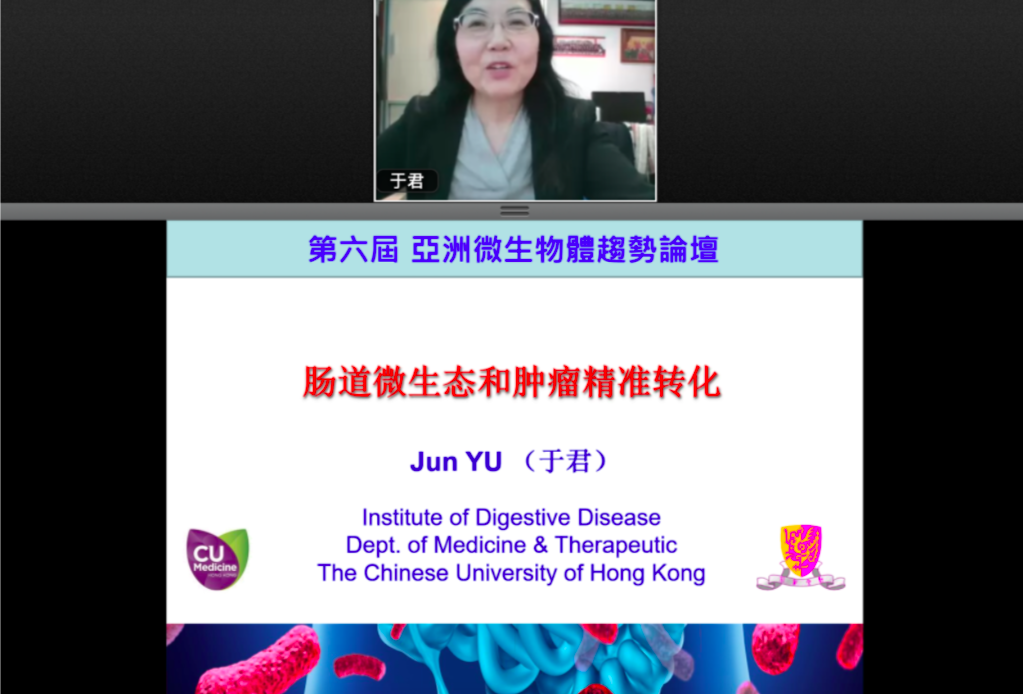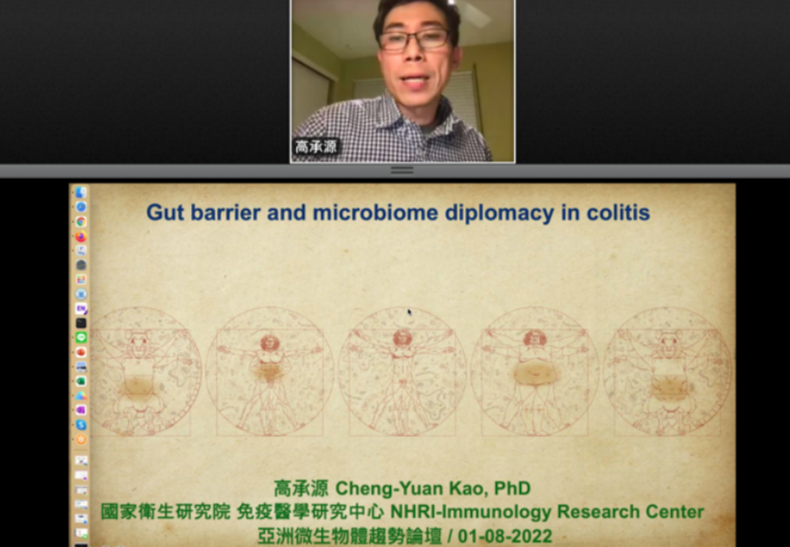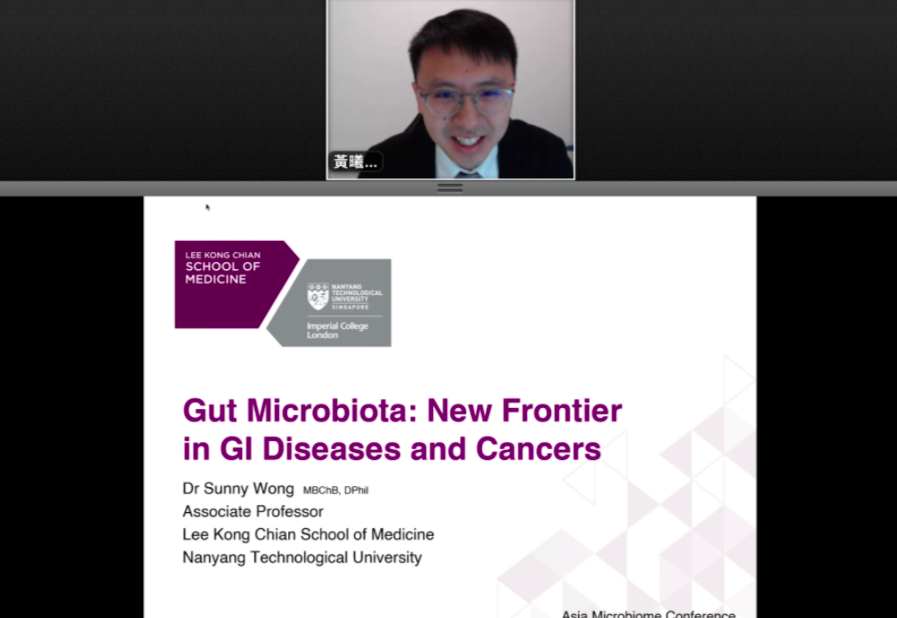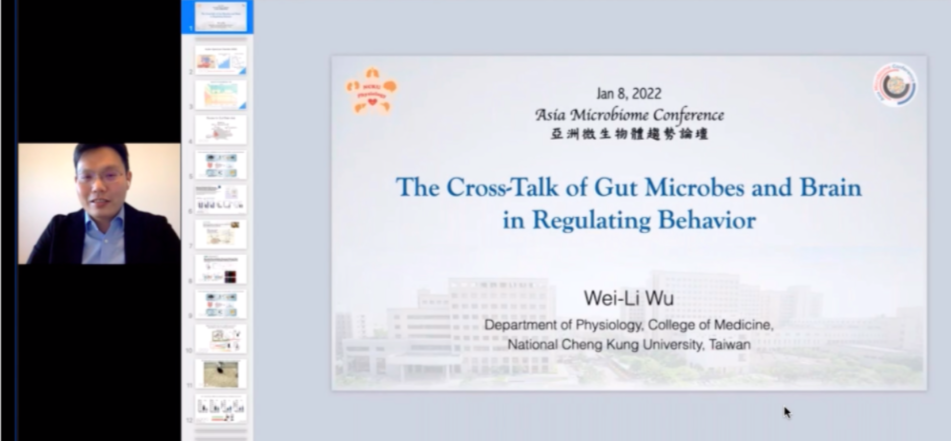How Our Microbiomes Are Connected to Irritable Bowel Syndromes, Cancer and Autism: Highlights from the 6th Asia Microbiome Conference
Our understanding of the microbiome transforms every year, thanks to a growing body of research that challenges conventional thinking of how microorganisms interact with our bodies.
A condensation of that research was made available at the Sixth Asia Microbiome Conference, an annual event co-organized by BIOTOOLS Co. Ltd, the National Taiwan University Hospital (NTUH) and Academia Sinica.
The conference invited experts from Taiwan, Hong Kong and Singapore to discuss the latest research trends and explore the microbiome’s relationships with cancer, irritable bowel disorders, and autism, as well as the therapeutic potential of tweaking the microbiome. The speakers are:
- Ming-Shiang Wu, Director of National Taiwan University Hospital
- Jun Yu, Director of the Institute of Digestive Disease, Department of Medicine and Therapeutic at the Chinese University of Hong Kong
- Cheng-Yuan Kao, a researcher at the NHRI Immunology Research Center
- Sunny Wong, an associate professor at the Nanyang Technological University Lee Kong Chian School of Medicine
- Wei-Li Wu, an associate professor from the Department of Physiology, College of Medicine, National Cheng Kung University of Taiwan
The microbiome, our “second genome”, is not only directly implicated in gut health, expressed Ming-Shiang Wu, Director of NTUH. The composition of microbes in the body influences the outcome and progression of neurodegenerative disorders, metabolic syndromes and cancers among other health conditions. It may well be the last piece of the puzzle we need to perfect our understanding of precision health and precision oncology, he said.

Related Article: 2021 BioJapan Highlights: How Can Metabolomics and Lipidomics Deepen Microbiome Research?
Microbial Interventions for Colorectal Cancer
Dr. Jun Yu from the Institute of Digestive Disease, Department of Medicine and Therapeutic at the Chinese University of Hong Kong, under her topic “The Gut Ecosystem and Advances in Precision Oncology”, explained how the composition of gut microbiota affects the development of colorectal cancer (CRC), and how altering that makeup could become a future course of cancer treatment.

She said that higher concentrations of Peptostreptococcus anaerobius are often found in the gut of patients with CRC. P. anaerobius expresses a protein called PCWBR2. PCWBR2 interacts with the cells lining the intestine, activating pathways that stimulate cell proliferation, encouraging tumor formation.
At the molecular level, P. anaerobius further encourages tumor growth by increasing NF-κB signaling, which triggers a pro-inflammatory response and suppresses the immune response towards the tumor microenvironment.
Taking into account the link between CRC and microorganisms, Yu proposed 4 possible clinical interventions. They are:
- Fecal microbiota transplant (FMT) to rescue the host’s immune system through the transplantation of a donor’s healthy gut bacteria
- Metabolite therapy (e.g. β-galactosidase)
- Regulating aspirin dosage after assessing levels of microbes that break down medication in the patient. (Aspirin is used as a preventative measure against CRC in certain age groups.)
- Establishing microbial biomarkers for early diagnostics
Dr. Yu also shared her team’s recent success in applying for a patent for an anticancer probiotic, which also produces metabolites beneficial to gut health. Probiotic interventions could also be a possible future intervention for disease, she said.
Related Article: OpenBiome and the University of Minnesota collaborate to give Microbes to those in Need
DUSP6 as a Biomarker for FMT and Knockout Target for Prevention of Inflammatory Bowel Disease

Cheng-Yuan Kao, Ph.D., a researcher at the NHRI Immunology Research Center expanded on the role of gut bacteria in obesity, ulcerative colitis (UC), and inflammatory bowel disease.
Dr. Kao’s team discovered in mouse models that upregulation of dual specificity phosphatase 6 (DUSP6) leads to diarrhea and weight loss. Conversely, DUSP6 knockout mice are more resistant to dextran sulfate sodium (DSS)-induced injury to the colon.
Increased permeability of the intestinal lining will result in the leakage of inflammatory bacteria and toxins through the intestinal wall, causing the so-called “leaky gut” phenomenon. While the researchers noted that DSS increased permeability in DUSP6 knockout mice, the mice were protected from developing UC.
The researchers also found that transplanting fecal matter from DUSP6 knockout mice to their wild-type (i.e. normal) counterparts protected the wild-type mice from gut inflammation.
Next, Dr. Kao’s team will investigate the anti-inflammatory effects of a gut bacterium genus named Duncaniella in mice.
Dr. Kao believes that DUSP6 has the potential to be listed as a microbiome biomarker for inflammatory bowel diseases (IBDs) or be included in the assessment criteria for selecting healthy fecal donors.
Tweaking the Gut Microbiome to Treat Irritable Bowel Syndrome
Dr. Sunny Wong, an associate professor at Singapore’s Nanyang Technological University Lee Kong Chian School of Medicine says that the gut microbiome extends its influence over many disorders of the digestive tract, including irritable bowel syndromes (IBS), colorectal cancer and gastrointestinal infections.
In particular, IBS is relatively common, with 10-20% of the population expressing symptoms of the disease.

Recent findings indicate that IBS may be caused by dysregulation of the gut-brain interactions, which is further related to abnormal composition of bacteria in the gut of people with IBS. These individuals are more likely than normal to suffer from impaired intestinal permeability in response to inflammation, and have heightened activity of T cells and mast cells.
Meta-analyses on the composition of bacteria in the gut of healthy people and those with IBS reveal significant differences. People with IBS tend to have higher levels of Lactobacillaceae, Bacteroides, and Enterobacteriaceae, and lower levels of Bifidobacterium and Faecalibacterium.
The current ways to improve IBS symptoms include antibiotic treatment, fecal microbial transplantation, probiotic treatment, and dietary interventions, said Dr. Wong. In particular, fecal microbial transplantation is very effective in rebuilding the micro-ecosystem and can greatly improve the quality of life with IBS.
The communication between the gut and the brain may play a role in autism, said Dr. Wei-Li Wu, associate professor from the Department of Physiology, College of Medicine, National Cheng Kung University of Taiwan. In his talk “The Cross Talk of Gut Microbes and Brain in Regulating Behavior”, Wu details the importance of the so-called “gut-brain” axis in health.

Wu expressed that current research on social behavior and gut microbiome in mice focuses on two major approaches: top-down and bottom-up.
In the top-down approach, researchers will extract the gut microbes from mice and analyze their composition, identifying potential strains that might cause diseases such as autism. Then, they will adjust the composition with probiotics (a.k.a. the good bacteria) with the goal of treating the disease.
The bottom-up approach confirms the function of gut microbes by comparing the microbiomes of mice raised in a germ-free environment with normal mice.
Using the bottom-up approach, Wu’s team discovered that Enterococcus faecalis regulates the nervous system in mice by suppressing stress hormones (e.g., corticosterone), which in turn promotes social behavior. In contrast, germ-free mice had higher levels of corticosterone and were more likely to avoid social interactions.
Related Article: Different Autism Genes Exert Similar Effects on Neuronal Development
Future Applications of Gut Microbes in Translational Medicine
In the discussion session, the panelists shared future applications of gut microbiota to translational medicine.
On the topic of diet and CRC, there was plenty of evidence from animal studies that a high-fat diet or one that was high in soluble fiber metabolites is carcinogenic, said Dr. Yu. Lifestyle habits such as smoking could also harm the gut microbiota, increasing cancer risk, she added.

Dr. Kao shared the “thrifty gene” hypothesis which claims that early humans evolved special genes to enable them to efficiently process food to deposit fat when there was a lot of food available, in preparation for a possible famine.
The mechanism proved detrimental in modern society, where food is often available and famine nonexistent, and instead contributed to an epidemic of obesity, said Dr. Kao.
As thrifty genes are intimately linked to the gut microbiome, tweaking the microenvironment could improve the management of obesity, he stated.
Meanwhile, Wong believes that there will be broader clinical applications of FMT as well as more FDA approvals for microbe-based therapies.
Wu concludes that academic research on the gut microbiome is starting to move from abstract descriptions of microbial functions to practical applications. He anticipates more collaborations between academia and industry on a variety of matters from food to microbial therapeutics.
©www.geneonline.com All rights reserved. Collaborate with us: service@geneonlineasia.com








